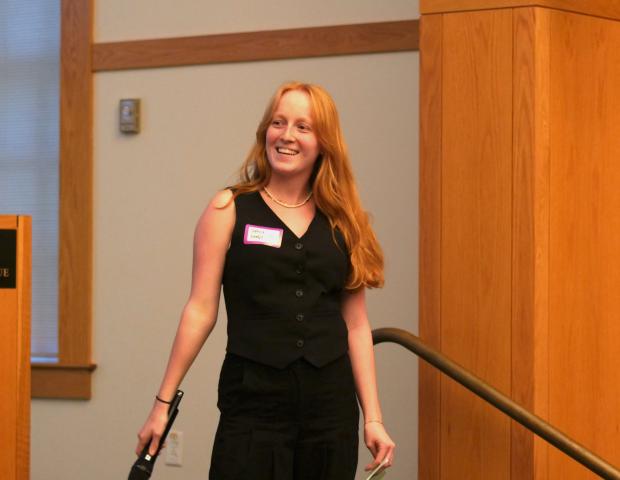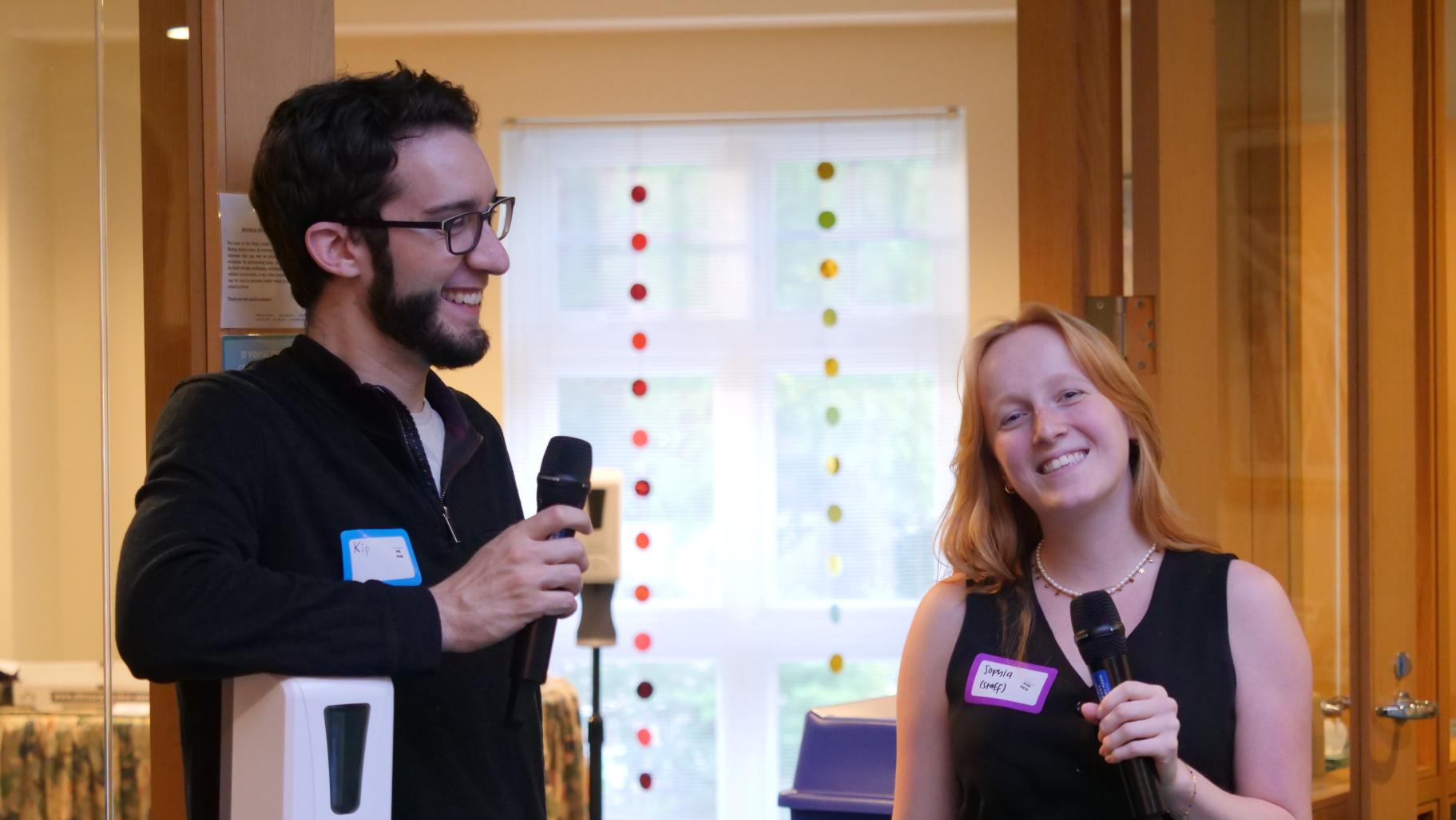My Reflections on Dialogue at the Ikeda Center
For the second year, the Ikeda Center participated in a partnership with Harvard’s Mindich Service Fellowship program, which provides Harvard undergraduates a chance to join local public service organizations for summer internships. In 2025, our summer intern was Sophia Robertson, a rising sophomore from Cambridge, MA. During her 10 weeks at the Center, Sophia participated in and supported the Center’s many programs, and co-facilitated one of our youth programs, Dialogue Nights Lite. At the conclusion of her internship, we asked her to share her reflections, which you can read below.
Sophia Robertson: My Ikeda Center Experience
When I started studying psychology and political discourse, I quickly realized that studying dialogue topics means engaging with people who are, well, very good at dialogue. Nowhere have I found this to be truer than at the Ikeda Center—my summer here has been both a transformative intellectual experience studying discourse and peace-building, and a wonderful introduction to a tight-knit organization committed to the power of dialogue in everyday life and work.
I joined the Center in early June, excited to explore dialogue from a micro-level perspective. After some experience researching broad theories of public discourse and studying international conflict resolution, I was ready to apply these insights to discourse between individuals. But by the first few days of my internship, I was already realizing that the Ikeda Center’s theory of dialogue isn’t just a principle for facilitated discourse—it’s a broad philosophy that encompasses everyday compassion, individual development through reflection on oneself and one’s interactions with others, and a network of global peace-builders committed to nonviolent social change.
This theory of dialogue—dialogue as it applies to the self, as a catalyst for inner transformation—was new to me, and kind of intimidating. I’m studying political psychology, which explores how individual human decision-making drives international phenomena, but I’d never considered how my own decision-making drives changes too. I’d seen myself as an observer, a student excited to learn everything she can, but had neglected my role as a human whose decisions, psychology, and inner character matter. That recognition spurs action, and Daisaku Ikeda calls that action human revolution, the lifelong process of inner transformation that, when scaled up, produces global transformation towards peace. Honestly, when I first read Mr. Ikeda’s work, I was open but doubtful. How can one person’s inner change spark world peace? Isn’t it the systems, the large-scale structures, that we need to change in order to provoke mass global transformation? But as I read his work and engaged with the Center staff, I started to understand a model of global change in which individual transformation is critical. Yes, it’s probably essential to change large-scale social structures to achieve long-lasting, positive change. But to change those structures for the better, and to ensure those changes won’t be dismantled later on, humans need to critically look inwards. We need to examine our flaws, understand our natural tendencies towards out-group othering and hate; uplift our natural tendencies for love, empathy, and care, our most powerful human instinct. And we must harness that care towards global care-taking—in Mr. Ikeda’s words, mobilize our wisdom, courage, and compassion to become true and effective global citizens.
The Center works towards that goal, and above all, the Center staff embody that message personally. I can’t count the number of incredible dialogues I’ve had since June—long talks with Pre while flyering about everything from friendships to our shared struggle with small talk; a thought-provoking dialogue about political discourse with Kevin that went forty minutes over schedule; daily conversations with Lillian, Anri, and the rest of the team (sometimes profound, sometimes about dogs or food; I love them all); and staff studies engaging in dialogue with Mr. Ikeda himself.
Most strikingly this summer, I experienced a wonderful level of creative agency. The team invited me to present ideas for summer-long projects, and our brainstorms quickly became full-on creative endeavors. We conducted a survey project, interviewing 80 individuals in Harvard Square about their beliefs on common ground, difficult dialogues, and the turbulent political situation. I analyzed takeaways from our four Dialogue Nights Lite events, examining how public fears around dialogue have changed since last summer. I presented a podcast idea about a simulated dialogue on nuclear disarmament, and the team rehearsed the script, and, before we knew it, we were recording. The team invited me to co-facilitate our June Dialogue Nights Lite event, trusting me to guide a room of participants through profound paired dialogues. And, most remarkably, I was able to observe and engage with almost every event the Center hosts: the annual Indigo Talk, this year with keynote speaker Darren Kew; the Global Citizens Seminar with diverse doctoral students; the Education Fellows meeting for scholars of Soka education and philosophy; and, of course, Dialogue Nights Lite and Dialogue Nights.
These opportunities were above and beyond my expectations for my time here—the thoughtfulness, trust, and care with which the team heard and encouraged my ideas was remarkable. I was most struck by how that care is extended to the community: the last day of my internship coincided with the Center’s August Dialogue Nights event commemorating the 80th anniversary of the atomic bombings of Hiroshima and Nagasaki. Over forty young people joined the Center in commemorating the anniversary and discussing disarmament action, and the evening was a thoughtful, hopeful way to honor the anniversary and end my summer at the Center.
The Ikeda Center has given me a second (or, technically, third!) home in Cambridge, and Mr. Ikeda’s work has shaped my vision of peace and conflict resolution through individual change. I’m so grateful for my time here, and to the wonderful staff that makes the Center such a special place. I’m so excited to visit soon :)

